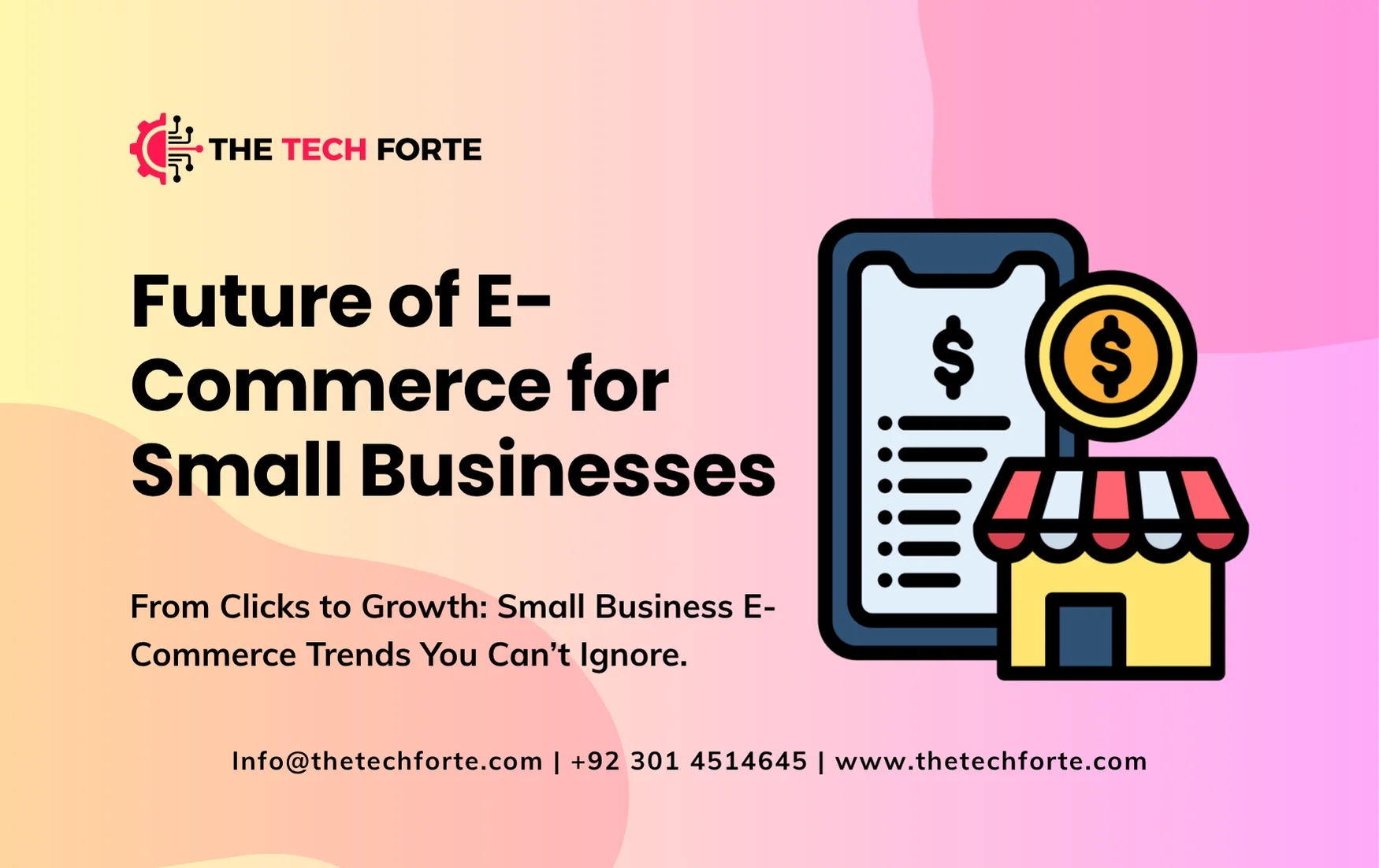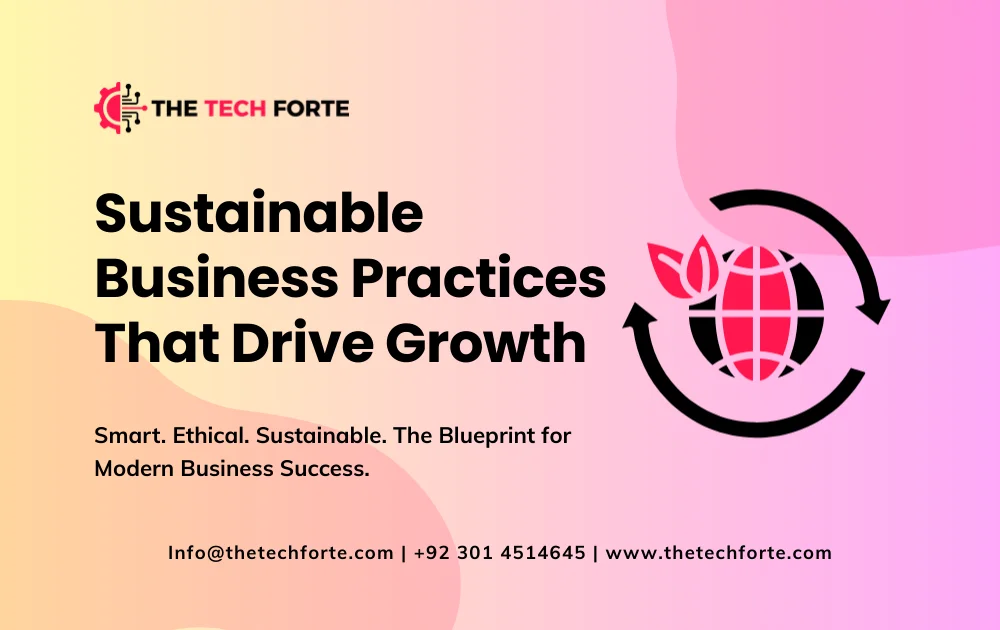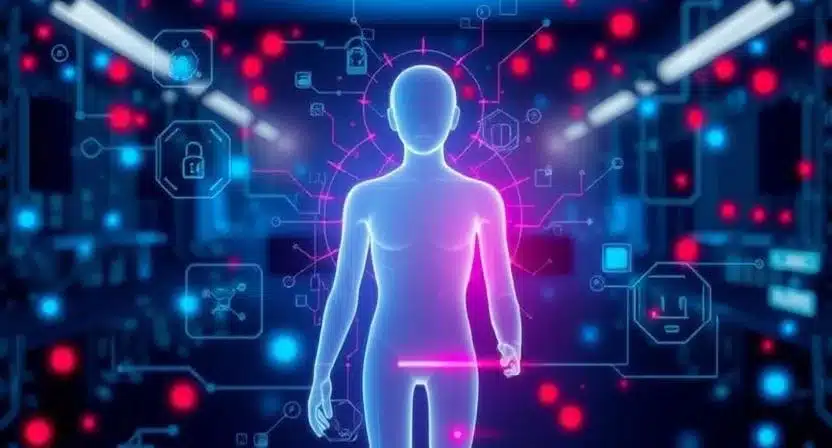Business
The Future of E-Commerce for Small Businesses

The digital marketplace has never been more critical for small businesses. As shopping habits shift online, even micro and local businesses are discovering that a strong e-commerce presence is essential for growth and survival. The future of e-commerce promises not only a platform for sales but also opportunities for innovation, personalization, and global reach.
For small businesses, this means embracing new tools, understanding emerging trends, and preparing for technological advancements that will define how customers shop, interact, and make purchases. Whether it’s leveraging AI for personalized recommendations or adapting packaging for sustainable delivery, staying ahead of trends is key.
Suggested Read: How to Build a Strong Online Presence for Your Business
Emerging Technologies Shaping Small Business E-Commerce
Technology is the backbone of modern e-commerce. Small businesses are now leveraging tools that were once only accessible to large enterprises.
- Artificial Intelligence (AI) is revolutionizing customer interactions, inventory management, and predictive analytics. AI can help small businesses anticipate customer needs, automate repetitive tasks, and personalize shopping experiences.
- Augmented Reality (AR) and Virtual Reality (VR) are increasingly used to showcase products online, allowing customers to virtually try items before purchase. These technologies enhance engagement and reduce returns, giving small businesses a competitive edge.
- Blockchain is also beginning to impact e-commerce, providing secure transactions, transparent supply chains, and new payment solutions for global customers.
Recommended Read: Business Automation: How to Save Time and Increase Profit

The Future of AI in E-Commerce
AI-driven tools are no longer optional; they are essential for small business growth. From chatbots to predictive analytics, the future of AI in e-commerce is about creating smarter, more efficient business operations.
AI helps small businesses:
- Automate customer service with chatbots and virtual assistants
- Recommend products based on browsing history
- Optimize inventory and reduce overstock
- Analyze sales data for trend predictions
- Support AI-driven lead generation for e-commerce, connecting businesses with potential customers more effectively
As AI becomes more accessible, small businesses can compete with larger brands by offering hyper-personalized shopping experiences.
Future of E-Commerce Packaging
Packaging is no longer just about protection; it’s about branding, sustainability, and customer experience. The future of e-commerce packaging focuses on:
- Eco-friendly materials and reduced waste
- Smart packaging with QR codes or NFC tags
- Lightweight, cost-effective solutions for shipping
- Designs that enhance unboxing experiences and customer loyalty
For small businesses, adopting innovative packaging solutions can make a significant difference in customer perception, repeat purchases, and operational efficiency.
Future of B2B E-Commerce
While much attention is given to B2C (business-to-consumer), the future of B2B e-commerce is also rapidly evolving. Small businesses are increasingly using digital platforms to source products, manage suppliers, and connect with partners globally.
Key trends include:
- Automated procurement and ordering systems
- AI-powered demand forecasting
- Streamlined payment and invoicing solutions
- Digital marketplaces tailored for small businesses B2B needs
By leveraging these tools, small businesses can expand operations, reduce costs, and scale efficiently.
Mobile Commerce and Omnichannel Experiences
Mobile devices are dominating online shopping. Future trends of e-commerce indicate that mobile commerce (m-commerce) will continue to grow, making responsive websites and mobile apps critical for small businesses.
Omnichannel strategies are also essential. Customers expect a seamless experience across web, mobile, social media, and in-store interactions. Small businesses that integrate multiple touchpoints can build stronger relationships, boost sales, and enhance brand recognition.
Personalization and Customer Engagement
Customers now expect experiences tailored to their needs. Personalization in e-commerce allows small businesses to:
- Offer product recommendations based on browsing and purchase history
- Send personalized email campaigns and promotions
- Tailor website content to specific customer segments
The future of AI-driven lead generation for e-commerce will enhance these efforts, helping small businesses identify potential customers, nurture relationships, and increase conversion rates. Personalization not only drives sales but also builds long-term loyalty.
Sustainable and Ethical Future of E-Commerce
Sustainability is becoming a key factor in purchase decisions. Small businesses can gain a competitive advantage by:
- Using environmentally friendly packaging
- Offering sustainable product lines
- Partnering with ethical suppliers
- Reducing carbon footprints through optimized logistics
Consumers increasingly support brands that reflect their values, making sustainability not just a trend but a critical part of the future of e-commerce.
Social Commerce and Influencer Marketing
Social media is no longer just a marketing channel; it’s a shopping platform. Social commerce enables small businesses to sell directly on platforms such as Instagram, TikTok, and Facebook.
Influencer partnerships and user-generated content help amplify reach, build trust, and drive sales. Small businesses that embrace social commerce early can tap into engaged audiences and compete with larger retailers.
Logistics, Fulfillment, and Delivery Innovations
Efficient logistics and fulfillment are crucial for small business success. Key trends shaping the future include:
- Same-day and next-day delivery options
- Automation in warehouses for faster processing
- Integration with third-party logistics (3PL) providers
- AI and IoT for route optimization and inventory tracking
By streamlining fulfillment, small businesses can enhance customer satisfaction and stay competitive in a fast-paced digital marketplace.
The Future of E-Commerce 2030
Looking ahead, the future of e-commerce 2030 promises:
- Fully automated supply chains with AI and robotics
- Immersive shopping experiences via AR/VR
- Personalized, predictive shopping tailored to individual preferences
- Increased global reach for small businesses, reducing barriers to entry
- Advanced data analytics driving smarter business decisions
Small businesses that embrace these trends early will be well-positioned to thrive in a highly competitive global market.
Challenges Small Businesses Will Face
Despite the promising future, challenges remain:
- High competition from large retailers and marketplaces
- Rapidly evolving technologies that require continuous learning
- Data privacy regulations and cybersecurity concerns
- Balancing cost efficiency with sustainability initiatives
By proactively addressing these challenges, small businesses can turn potential obstacles into growth opportunities.
You can read: How Small Businesses Can Compete with Big Brands in 2025
FAQs – Future of E-Commerce
It includes AI-driven personalization, mobile and social commerce, sustainable packaging, and streamlined logistics.
AI can automate customer service, generate leads, recommend products, and forecast demand.
Trends include omnichannel shopping, social commerce, AR/VR experiences, and sustainable supply chains.
Packaging will focus on sustainability, smart technology, branding, and cost efficiency.
By adopting new technologies, embracing sustainability, leveraging AI, and optimizing logistics for efficiency.
Conclusion: Embracing the Future of E-Commerce
The future of e-commerce presents enormous opportunities for small businesses that are willing to innovate, adapt, and leverage technology. From AI-driven personalization and sustainable packaging to mobile commerce and global B2B platforms, small businesses can now compete on a level playing field with larger corporations.
By investing in technology, adopting sustainable practices, and staying attuned to customer needs, small businesses can not only survive but thrive in the digital economy. In a world increasingly shaped by online shopping, the future belongs to those who prepare today.
If you plan to start an E-commerce Store for selling your products, I recommend that you get expert e-commerce store development services from HINTSOL agency.
Business
Leadership Challenges and Motivation of Employees at ChildFund Australia

Every organization aims to drive positive change by using effective tools and strategies. However, ChildFund Australia is currently facing Leadership challenges due to insufficient implementation of change management practices within the company. Proper evaluation of change management is essential for maintaining organizational health and supporting long-term sustainability. With declining employee motivation, Lack of Motivation of Employees, ChildFund Australia must adopt strong change management techniques to enhance performance and ensure smooth operational progress.
Suggested Read: Zara Global Expansion and Sustainable Growth Strategy
Leadership Challenges:
As the leader of ChildFund Australia, I have observed that employee motivation within an NGO plays a crucial role in successfully implementing change management. When staff and team members lack motivation, their engagement decreases, which negatively affects the overall performance of the organization. Therefore, it is essential to develop and implement effective change management strategies to enhance staff motivation and support organizational success.
Motivation of Employees Purpose:
The primary purpose of this report is to assess the challenges faced by ChildFund Australia in carrying out its operations. Another key aim is to provide appropriate change management recommendations to help the organization address these issues. This report also seeks to explain concepts related to employee work behavior, staff motivation, and effective change management practices.
Rationale:
When the issue of low motivation is addressed, it leads to improved employee performance and enhances their overall work behavior. Since employees are a vital part of the organization and contribute directly to its success, applying effective change management strategies to boost their motivation will ultimately strengthen organizational performance. This report is useful for examining how the “lack of motivation” among employees poses a challenge to the company’s success.
Scope and limitations:
The scope of this report is broad, as it focuses on gaining a comprehensive understanding of employee engagement, staff motivation, and the application of change management practices under effective leadership. It examines the overall process of initiating sustainable changes and supporting leaders in guiding their teams through these transitions. Leadership plays a critical role by offering strategic direction, managing team dynamics, and addressing key challenges within the organization. The primary limitation discussed in this report relates to the negative work behavior observed at ChildFund Australia, which stems from insufficient employee motivation and inadequate change management practices.
Overview of the organization:
ChildFund, also known as ChildFund International, is a child-focused international development organization that supports children experiencing poverty and various challenges across nearly 24 countries. Formerly recognized as the Christian Children’s Fund, the organization is headquartered in Richmond, United States. Founded in 1938 by J. Calvitt Clarke, ChildFund operates as a charitable organization dedicated to improving the lives of children. Its services are primarily funded through monthly child sponsorships from individual donors. Additionally, ChildFund receives grants and donations that contribute to initiatives such as literacy programs, vocational training, and immunization efforts. ChildFund Australia also plays a significant role in funding and supporting these essential programs.
The company was previously well-known for its TV commercials aired on major networks in the United States, which featured various actresses over a long-running series of advertisements. Individual sponsors contribute monthly funds, which are pooled together to benefit entire communities. Each country office designs programs tailored to the specific needs of its local community, while common initiatives, such as early childhood development, establish essential and impactful processes that support the organization’s overall mission.
Analysis of the issue and SDG:
ChildFund Australia is a donation-based non-governmental organization that develops effective strategies to enhance the overall impact and responsiveness of its operations. Focusing on children as the primary beneficiaries, the organization aligns its initiatives with Sustainable Development Goal 4 (Quality Education) to ensure meaningful project outcomes. The firm’s mission is to provide equitable resources to children within specific communities, supporting the core functions of the organization.
As a child-focused organization, the primary target group is children, who benefit from essential activities and help drive the implementation of strategic objectives. To manage organizational functions effectively and navigate significant changes, the company must develop robust strategies that integrate comprehensive actions. As the leader of ChildFund Australia, I have observed that the organization faces challenges in implementing change management due to a lack of employee motivation, despite staff working diligently to achieve the company’s goals and objectives.
To enhance organizational performance and effectively manage change, the company’s functions must be clearly defined to lead valuable transformations and generate meaningful outcomes. Sustainable Development Goal 8 (Decent Work and Economic Growth) provides a framework to evaluate the organization’s value and guide its operations while emphasizing the importance of managing change strategically. By implementing structured organizational functions and overseeing critical processes, the company can ensure that roles and responsibilities are clearly assigned and executed.
The primary issue highlighted in this report is the lack of effective change management, which has hindered employee motivation and limited their ability to adopt improved work practices, ultimately affecting the organization’s knowledge advancement and operational efficiency. Without sufficient motivation and engagement, organizational stability may be compromised. Therefore, the company must plan and implement strategic changes, establish clear values, and adopt proactive management practices to support growth-oriented operations and ensure sustainable progress.
The lack of employee motivation at ChildFund Australia has led to a decline in performance and teamwork, negatively impacting the organization’s resources and the efficiency of its operational processes. In this context, Sustainable Development Goals 4 (Quality Education) and 8 (Decent Work and Economic Growth) are closely linked to the challenges faced by the organization and play a key role in supporting sustainable operations. To strengthen business functions and implement effective plans, the organization must ensure that its processes are clearly structured and strategically managed.
Change strategy and justification of problem-solving:
By implementing an effective change management strategy, organizational performance can be enhanced, and resources can be utilized more efficiently. As the leader of ChildFund Australia, I have decided to develop a robust change management approach to boost employee motivation and engagement. To strengthen business functions and uphold organizational values, activities must be structured in a way that supports higher-level strategic goals.
Effective management of organizational practices and increased awareness requires monitoring and guiding the current strategy to ensure progress and adaptability. By motivating employees through both financial and non-financial incentives, the organization can enhance its overall resources and operational efficiency. Clearly defined business processes, aligned with updated strategic plans, ensure responsiveness and facilitate improved organizational interaction. Implementing change management and organizing current activities according to sustainable planning principles will allow the company to achieve long-term success and maintain effective operations.
By providing key incentives to employees, their work behavior and motivation to contribute to children’s welfare can be significantly enhanced, fostering a positive and productive organizational environment. To effectively guide business functions and strategic direction, these processes must be carefully assessed and aligned with the organization’s immediate priorities. With proper incentives, the issue of employee “lack of motivation” can be mitigated while promoting health and well-being, which supports smoother operations and effective execution of employment activities across critical roles. By evaluating organizational performance and implementing change management practices, the company can respond promptly and effectively to challenges, ensuring sustained progress and operational efficiency.
Leadership model and justification of problem-solving:
According to Lewin’s change management model, the three key stages, unfreeze, change, and refreeze, provide a structured approach for guiding organizational transformation. The process begins with recognizing the need for change, followed by identifying and implementing the necessary actions, and encouraging the replacement of outdated behaviors and attitudes. These stages help direct the organization toward improved practices and sustainable business growth outcomes.
To enhance organizational performance and address current challenges, effective change management practices must be implemented. The primary issue at ChildFund Australia is the lack of employee motivation, which can be addressed through the development of advanced operational strategies and the provision of appropriate incentives. By guiding business interactions and utilizing available resources efficiently, organizational functions can be optimized. Implementing change management ensures that these functions are aligned with organizational goals and facilitates stronger connections across the company.
Lewin’s change management model provides a structured approach to identify and implement the areas that require transformation within an organization. By analyzing available resources and optimizing business performance, the organization can achieve significant and measurable outcomes. Implementing this model enables ChildFund Australia to strengthen organizational functions, manage responses effectively, and ensure alignment with strategic objectives. Lewin’s approach facilitates clear planning, supports improved decision-making, and enhances overall organizational performance by guiding actions and leveraging resources efficiently. Evaluating and applying change management practices in this manner helps the organization adopt sustainable improvements and achieve its long-term goals.
Key leadership actions to enact change in the organization:
As the leader of ChildFund Australia, it is essential to implement effective change management practices to enhance and define organizational performance. Several key actions can support the business and its leadership teams in motivating employee growth and improving overall performance. By optimizing organizational functions and managing strategic roles, the company can foster a positive work environment and cultivate a culture that drives meaningful outcomes across all levels of the organization.
- The company should provide comprehensive training to employees on analyzing the core services of NGOs. As a child protection and rights organization in Australia, ChildFund Australia focuses on addressing key issues faced by children, including education and other essential aspects of life. By equipping employees with proper training on organizational strategies and core values, the company can ensure that its functions are effectively executed. Evaluating and implementing change management practices supports accountability and reinforces the organization’s objectives. Additionally, fostering a strong organizational culture and structured planning enhances the overall efficiency and effectiveness of business operations.
- By encouraging employees to think differently and embrace meaningful changes, leaders can effectively implement change management practices. This involves identifying areas that require change, assessing their impact, and developing a well-structured plan while providing clear guidance to the entire organization. With reliable business processes in place, the organization can align its operations with strategic objectives and update communities and employees on key directions. By setting a strong example, ChildFund Australia can motivate its employees and successfully execute effective change management practices.
Conclusion:
This report aims to evaluate the key challenges faced by ChildFund Australia from the perspective of organizational leadership. It analyzes the issues and outlines actionable strategies to address them. The primary challenge is the lack of employee motivation and limited knowledge of child education programs, which negatively impacts overall organizational performance. By providing targeted training programs, along with financial and non-financial incentives, the organization can address this issue and enhance overall progress. Resolving these challenges is crucial for understanding business operations and ensuring that organizational activities align with strategic goals. The implementation of Lewin’s change management model allows the organization to update current processes and address existing issues through structured and strategic initiatives.
Business
Sustainable Business Practices That Drive Growth

Sustainable business practices are no longer a “nice to have.” For many organizations, they’re a strategic imperative, a route to cost savings, resilience, brand trust, regulatory readiness, and new revenue. This article explains what sustainable business practices are, shows actionable examples you can copy, explores how blockchain can support sustainability, reviews the role of sustainability through COVID-19, and lays out the measurable benefits of sustainable business practices and ethical and sustainable business practices frameworks that leaders can operationalize.
I drew on business research, case studies, and policy analysis to make this practical and rigorous. The aim is to help executives, sustainability leads, and product owners turn sustainability from marketing copy into business outcomes. Key claims are supported by respected analyses.
Suggested Read: Zara Global Expansion and Sustainable Growth Strategy
Why sustainability now equals growth
- Sustainability can be a source of competitive advantage when it’s tied to cost reduction, resilience, and new product lines rather than standalone reporting. Leading companies that integrate environmental, social, and governance (ESG) into core strategy often outperform peers on return and risk-adjusted metrics.
- Practical sustainable business practices range from reducing energy and waste to product redesign, circular model, and community partnerships. Many are low-cost and high-impact; others require strategic investment matched to measurable KPIs.
- Technology, including IoT, data analytics, and selective use of blockchain, enables traceability, optimization, and new circular business models. But technology is an enabler, not a substitute for governance, ethics, and stakeholder alignment.
What are sustainable business practices? A concise working definition
Sustainable business practices are operational, product, and strategic choices that reduce environmental impact, strengthen social value, and improve governance while preserving or enhancing long-term financial performance. They include:
- Operational efficiency (energy, water, materials)
- Product design for durability, repairability, and recyclability
- Circular models (reuse, refurbishment, take-back)
- Responsible sourcing and supply-chain transparency
- Inclusive employment and community engagement
- Ethical governance, reporting, and stakeholder accountability
These practices are meaningful when they are measurable, governed, and linked to business KPIs (costs, revenues, risk, customer retention).
Nine pragmatic sustainable business practices: what to do and how (with examples)
Below are nine high-impact practices, each with actionable steps and example outcomes.
Energy efficiency and decarbonization (quick wins → strategic projects)
What to do: Conduct an energy audit, switch to LED lighting, optimize HVAC controls, and establish a roadmap to renewable electricity (PPAs, corporate renewables). Longer term: electrify fleets and invest in on-site generation or green power contracts.
Why it matters: Energy is often a top operating cost for manufacturing and logistics; reducing use lowers emissions and improves margins. McKinsey shows sustainable investments can create defensible value and mitigate transition risks.
Example: A retail chain that retrofits stores with LED + smarter thermostats saw energy bills drop 15–30% within a year while improving store comfort.
Waste minimization & circular packaging
What to do: Audit packaging, move to reusable or recyclable materials, redesign inner packaging, and enable bulk and refill models. Deploy return/repair programs for products.
Actionable metric: measure packaging-to-product weight, recycling rates, and take-back participation.
Example: FMCG brands that halve packaging weight cut material costs and landfill fees, while adding a resale channel for returned goods, increase lifetime customer value. QuickBooks and other guides show multiple practical steps for small businesses.
Supply-chain traceability and responsible sourcing
What to do: Map suppliers by tier, require environmental and social codes of conduct, and use audits and third-party verification. For high-risk inputs, aim to source certified or traceable alternatives.
Why it matters: Regulatory and consumer scrutiny is rising; lack of traceability increases reputational and compliance risk. Traceability also unlocks premium pricing for verified sustainable goods.
Example: Luxury and food brands use blockchain-enabled traceability pilots to prove origin stories and claim ethical sourcing, supporting resale and circular services.
product redesign for longevity and repairability
What to do: Redesign for modularity (replaceable parts), provide spare parts, publish repair guides, and partner with authorized repair networks or third-party repair cafés.
Why it matters: Extending product life defers material inputs and creates a service opportunity (repairs, parts). It also reduces customer churn by building brand trust.
Example: Electronics firms that sell replacement batteries and parts see increased brand loyalty and new revenue from parts and servicing.
Circular business models (resale, refill, subscription)
What to do: Pilot buy-back, refurbishment, rental, refill, or subscription options focusing first on high-value, durable goods. Align logistics and reverse-supply chains to make returns low-friction.
Why it matters: Circular models convert one-time transactions to recurring revenue and can access new customer segments. Case studies show refurbished product channels often reach value-sensitive customers without cannibalizing new sales.
Sustainable procurement & supplier engagement
What to do: Use sustainability KPIs in procurement decisions, provide supplier training, and create incentives for lower emissions or better labour practices. Embed ESG clauses into contracts.
Why it matters: Suppliers often control most of a product’s emissions; procurement can be the lever to reduce scope-3 emissions.
Actionable metric: supplier emissions per $ spent, percentage of spend with vetted suppliers.
Employee engagement & inclusive workplaces
What to do: Involve employees via green teams, skills training, and inclusive hiring. Track diversity metrics and ensure living wages across key supplier geographies.
Why it matters: Engaged employees reduce turnover (cost savings) and drive grassroots efficiency improvements; diversity increases creativity and problem-solving. FSC and other practitioner guides emphasize employee involvement as a practical lever.
Community partnerships and local sourcing
What to do: Source locally where feasible, partner on community projects, invest in local skills that support long-term supply stability.
Why it matters: Local ties reduce transportation emissions and build social licence, which is critical during social and supply shocks (see COVID-19 lessons below).
Measurement, transparency & governance (the operational backbone)
What to do: Implement robust ESG metrics (energy, water, waste, scope-1/2/3 emissions), publish progress, and integrate sustainability into executive KPIs and remuneration. Establish audit trails and data governance.
Why it matters: Transparency builds stakeholder trust and enables continuous improvement. McKinsey’s frameworks stress the need to measure both defensive and offensive value of sustainability actions.
Recommended Read: How to Build a Strong Online Presence for Your Business
How blockchain can support sustainable business practices, practical pathways, and limits
Blockchain is hyped and useful when applied to traceability, provenance, and trusted data sharing. But it’s not a silver bullet: energy use, governance complexity, and standards alignment matter.
Practical blockchain use cases for sustainability
- Supply-chain traceability: Immutable records of origin, processing, and custody (e.g., fish, diamonds, specialty coffee) help fight fraud, illegal sourcing, and greenwashing. OpenSC, backed by WWF and BCG Digital Ventures, shows a working model in fisheries that improves buyer confidence.
- Circular economy enabling: Tokenizing product IDs enables tracking through resale, recycling, and repair markets, maintaining provenance and unlocking secondary-market value (helpful in luxury fashion consortia like Aura).
- Renewable energy trading & carbon accounting: Blockchain can settle peer-to-peer renewable energy credits or green certificates, increasing market liquidity and transparency.
- Verified claims and consumer transparency: QR codes linked to ledger entries let consumers verify product claims (origin, emissions, labour conditions) without trusting a single brand’s statements.
Important caveats and responsible design
- Energy and emissions: Proof-of-work blockchains are carbon-intensive; choose energy-efficient consensus (proof-of-stake, private/permissioned ledgers) or offset mechanisms.
- Data input quality: Blockchain secures records but does not guarantee truthful inputs. Combine with physical verification (IoT sensors, audits).
- Standards & interoperability: Supply-chain transparency needs common identifiers and shared schemas; consortia and standards bodies are crucial.
Bottom line: blockchain excels for shared, auditable records when combined with sensor data and strong governance, particularly in food, fashion, and high-value goods.
Sustainable business practices and COVID-19: resilience lessons & strategy
COVID-19 tested corporate resilience and accelerated some sustainability trends.
What COVID taught leaders about sustainability
- Resilience trumps cosmetics: Firms that had diversified suppliers, localized buffers, and stronger community ties weathered disruptions better. McKinsey’s pandemic work highlights how companies that used resilience-oriented practices recovered faster.
- Health & safety integration: Pandemic planning drove investments in employee wellbeing and safer supply chain practices that align with social sustainability.
- Digital & remote operations: Remote work reduced commuting emissions and forced process digitization, both sustainability wins and permanence in working models for many firms.
- Community expectations rose: Businesses expected to support public health efforts and local economies; reputational value accrued to companies that acted responsibly.
Actionable COVID-era policies that persist
- Build supplier redundancy for critical inputs, with sustainability clauses.
- Maintain emergency stocks of essential components via circular or refurbished sourcing.
- Invest in employee health programs and transparent communication channels.
In short, the pandemic shifted sustainability from reputation management to operational resilience, a shift that continues to inform investment decisions and ESG criteria.
Measurable benefits of sustainable business practices (hard numbers & KPIs)
Executives need ROI. Here are the primary value streams and how to measure them:
Cost reduction & margin improvement
- Energy & waste: Energy audits and efficiency can reduce utility bills 10–30% in many facilities.
- Packaging and materials: Lighter packaging lowers logistics costs. Measure cost per unit, waste disposal fees, and material sourcing costs.
Revenue growth & premium pricing
- Brand & loyalty: Verified sustainability claims can command price premiums in categories like food, apparel, and personal care. Measure repeat purchase rates, NPS changes, and price elasticity in sustainable SKUs. McKinsey outlines frameworks for offensive value capture via green products.
Risk mitigation & insurance savings
- Supply-chain risk: Transparent and diversified supply chains reduce exposure to shocks and regulatory penalties. Track downtime and business interruption costs.
- Regulatory compliance: Proactive reporting reduces fines and enables earlier adaptation to new rules.
Access to capital & lower cost of capital
- Investors increasingly price in ESG; better ESG performance can lower perceived risk and cost of capital for public firms. Measure changes in investor base, ESG ratings, and credit spreads.
Talent attraction & retention
- Employees prefer mission-driven companies. Track turnover, recruitment time, and employer-brand metrics.
Innovation & new business models
- Circular services, repair, resale, and subscription models create recurring revenue streams. Track gross margin per refurbished unit versus new units.
Ethical and sustainable business practices: frameworks for trustworthy action
Sustainability without ethics risks greenwashing. Ethical & sustainable business practices require both process and culture.
Core elements of an ethical sustainability program
- Stakeholder engagement: map constituencies (workers, suppliers, communities, shareholders) and establish feedback channels.
- Materiality analysis: prioritize actions that matter for both impact and business value.
- Transparent metrics & third-party assurance: use recognized standards (GHG Protocol, SASB, TCFD) and independent audits.
- Remediation pathways: when suppliers or operations fail standards, have clear corrective action plans.
- Governance & incentives: align executive compensation and procurement KPIs with sustainability goals. Research shows governance alignment is crucial for durable impact.
Practical ethics checklist
- Are claims independently verifiable?
- Do you publish both successes and gaps?
- Are suppliers’ and workers’ rights protected in contracts?
- Do you have an escalation and remediation protocol?
Implementation playbook: step-by-step (practical & phased)
Phase 0 Leadership & baseline
- Secure C-suite sponsorship and a cross-functional steering group.
- Run a materiality assessment and baseline emissions/impact audit.
- Set near-term KPIs (12–24 months) and 3–5 year targets.
Phase 1 Quick wins (0–12 months)
- LED lighting, building controls, packaging rationalization, and policy updates for procurement.
- Launch employee engagement and a small number of pilot circular programs. Measure and scale successes.
Phase 2 Systems & scale (12–36 months)
- Implement supplier mapping and traceability systems (consider blockchain pilots where value is shared).
- Deploy product redesigns, circular logistics, and certified sourcing. Integrate sustainability into procurement decisions.
Phase 3 Innovation & new business (36+ months)
- Scale circular services (refurbish, rental, resale).
- Expand into green product lines and new revenue streams.
- Institutionalize governance with external assurance and integrate ESG into investor communications.
Case studies & examples (short, instructive)
OpenSC & fisheries traceability (WWF + BCG)
OpenSC demonstrates how shared blockchain records plus QR codes can verify origin claims in seafood, improving buyer confidence and discouraging illegal fishing. This is an example where transparency drove measurable improvement in sourcing integrity.
Luxury brands & Aura Consortium (blockchain for circular luxury)
Select luxury houses use blockchain consortia to maintain product provenance through resale and repair lifecycles, enabling circular revenue streams. These pilots show blockchain’s real potential when major industry players agree on standards.
Industrial energy & digital twins (GE)
GE and similar industrial players use IoT sensors and digital twins to optimize wind turbine placement and maintenance, reducing downtime and improving energy output, a clear example of sustainability + productivity.
Common pitfalls and how to avoid them
- Treating sustainability as marketing: Without measurable programs and governance, sustainability claims are fragile. Avoid PR-only projects.
- Ignoring scope-3 emissions: Focusing on on-site emissions while ignoring supplier emissions misses the bulk of many companies’ footprints. Map scope-3 early.
- Lack of coordination: Sustainability must be embedded across procurement, R&D, operations, and finance, not siloed.
- Poor data governance: Inaccurate data undermines credibility. Invest in verifiable measurement and auditability.
- Technology fetish: Use technology to enable governance and business couldn’t adopt tech for novelty alone.
The future: why sustainability will keep driving growth
- Policy tightening (carbon pricing, disclosure mandates) will make early movers more competitive.
- Consumer sophistication increases demand for verified sustainable goods.
- Tech advances: cheaper renewable energy, better recycling, AI for optimization, lower cost, and opening new models.
- Capital markets: continued growth of sustainability-linked finance ties the cost of capital to outcomes.
McKinsey and others show that sustainability tied to growth and profitability is achievable and increasingly expected by investors and customers. Organizations that tie sustainability to core value creation, not just compliance, will capture the most advantage.
Quick checklist for leaders
- Appoint an accountable executive and governance forum.
- Run a materiality assessment and set measurable targets.
- Start 3 quick wins (LEDs, packaging, supplier code) and measure ROI.
- Pilot traceability for one high-risk product (blockchain + IoT if needed).
- Build supplier training programs and integrate ESG into procurement.
- Publish transparent progress and third-party verification.
- Incentivize leaders with sustainability KPIs.
- Reinvest savings into circular innovation and local community programs.
- Prepare investor communications tying sustainability to growth metrics.
- Keep learning: benchmark peers and update targets annually.
Conclusion: sustainability with rigor and purpose
Sustainable business practices are not a cost center when implemented strategically. They reduce costs, unlock new revenue models, reduce risk, and build trust, but only when they are measurable, governed, and aligned with the business model. Technology such as blockchain can accelerate transparency and circularity when combined with sensors, audits, and interoperable standards; however, governance and ethical design are the durable enablers of impact.
Start with materiality, pursue pragmatic pilots, measure hard outcomes, and scale what works. That’s how sustainability stops being rhetoric and becomes a repeatable engine of growth.
Business
Zara Global Expansion and Sustainable Growth Strategy

The Spanish fast-fashion retailer Zara has built itself into a globally recognised brand, operating across dozens of countries and competing in a high-velocity marketplace. This Zara Global Expansion and Sustainable Growth Strategy report aims to examine Zara’s international expansion techniques and its sustainability initiatives. The analysis comprises three central tasks: first, an environmental overview (both external and internal); second, its global market entry initiatives; and third, its corporate strategies.
Organisations such as Zara are inevitably influenced by external factors, which means they must continuously monitor and respond to them to maintain growth. As Zara ventures beyond its domestic market, it faces the challenge of understanding and adapting to new environments. Effective planning and operational control of global operations are therefore crucial to ensure future success and sustainable business decisions.
Task 1: Environmental Analysis
External and Internal Environments
This section presents a detailed examination of Zara’s environment. As a global fashion brand, Zara offers a broad portfolio of apparel products and has achieved success by responding rapidly to consumer demands. To formulate effective strategies and enhance organisational capabilities, Zara leverages both external and internal frameworks to guide decision-making. Among the key analytical tools applied here are the PESTEL framework for the external environment and the VRIO framework for internal resource assessment.
External Analysis: PESTEL Framework
PESTEL (Political, Economic, Social, Technological, Environmental, Legal) is widely used to identify external factors that impact business performance (Johnson et al., 2017). For Zara, each dimension plays an important role in shaping strategic practice.
Political:
International trade policies and regional tax regimes are major political forces affecting Zara’s global operations. Operating across Europe, Asia, and the Americas means Zara must navigate varying regulations and governmental frameworks. For example, expansion into markets such as China or India requires compliance with local trade laws, tariffs, and foreign-investment regulations; shifting government policies may hamper Zara’s speed of entry into those markets (Zhu, 2022).
Economic:
Key economic variables such as supply-chain cost structure, labour availability, and consumer spending power influence Zara global strategy. Although headquartered in Spain, Zara benefits from relatively low labour costs in certain manufacturing locations and large-scale purchasing of materials, enabling cost benefits. Historically, production has been concentrated near Spain for rapid responsiveness, but offshoring and free-trade zones also contribute to competitive cost management (Inditex, 2024). Economic downturns, changing consumer income levels, and currency fluctuations therefore significantly affect Zara’s global performance.
Social:
Consumer attitudes and the adoption of e-commerce have changed significantly in recent years. Zara’s emphasis on trendy, affordably priced fashion aligns with the fast-fashion consumer expectation. Additionally, its investment in online presence and logistic enhancements responds to growing digital shopping behaviours (Martin Roll, 2020). Zara also adapts product lines to local cultural preferences, catering to diverse age groups and countries, thus boosting its penetration in new regions.
Technological:
Innovations in supply-chain management, inventory tracking, and digital retail have bolstered Zara’s capabilities. For instance, the adoption of RFID technology and advanced IT systems in its distribution network ensures rapid restocking and minimal inventory lag (Aithor, 2024). Zara’s online platform and global logistics network point to a sophisticated technological approach that enables it to link design, manufacturing, and retail more tightly than many competitors.
Environmental:
Sustainability concerns are becoming central to the apparel retail industry. Zara, through its parent company Inditex, is investing in eco-friendly production and pledging to reduce its carbon footprint. The firm acknowledges that sustainability is not only an ethical requirement but a competitive differentiator (Inditex, 2023). Its commitment to “responsible fashion” and more sustainable sourcing practices underlines the importance of environmental factors in strategic planning.
Legal:
As Zara expands into multiple jurisdictions, it must comply with a wide range of laws, including intellectual property, labour standards, and retail licensing. For example, trademark, patent, and copyright protections affect Zara’s ability to maintain design advantages across borders. Failure to meet regional labour regulations or to address ethical manufacturing could incur reputational and financial risks (Stooksbury, 2021).
Internal Analysis: VRIO Framework
The VRIO model (Value, Rarity, Imitability, Organisation) helps assess internal resources to identify sources of sustainable competitive advantage (Barney, 1991). Applying VRIO to Zara yields the following:
- Valuable: Zara’s agile design-to-store model generates significant value, enabling rapid response to fashion trends and efficient turnover (Benavides, 2024).
- Rare: The vertical integration of design, manufacturing, and distribution within Zara is relatively unique in the fast-fashion sector, and the scale of Zara’s global footprint is rare (Turn0search3).
- Imitable: While competitors may attempt similar supply-chain agility, Zara’s established system and data-driven operations are difficult to replicate without extensive investment and time (Zhu, 2022).
- Organised: Zara has structured its organisational processes to exploit its resource base: its parent company, Inditex, provides centralised coordination of global operations and consistent brand strategy (Inditex, 2024).
From these, Zara’s internal capabilities can be seen as sustainable advantages that support its global expansion and strategic growth.
Critical Success Factors
From this analysis, several key factors emerge:
- Zara’s strong brand recognition and global presence underpin its capacity to set fashion trends and reach broad markets.
- Its highly efficient supply-chain network and ability to respond quickly to demand give it an edge in fast-fashion retail.
- Effective leadership and organisational structure, supported by Inditex, provide strategic coherence.
- Technological infrastructure that supports real-time inventory, data analytics and global logistics further strengthens the business model.
Sources of Competitive Advantage
Key sources include:
- A globally integrated supply chain that enhances control over production and delivery.
- A product-offering strategy that emphasises trendy, frequently updated apparel to maintain customer engagement.
- Diverse global market positioning—targeting wide demographic segments across multiple countries.
- Cost and speed leadership achieved through production-distribution proximity and efficient logistics (Benavides, 2024).
Maintaining Competitive Advantage
To maintain or strengthen its competitive position, Zara adopts the following strategic practices:
- Leveraging economies of scale and efficient supply-chain coordination to keep lead times short and costs down.
- Introducing differentiated and innovative product lines to avoid commoditisation and maintain customer interest.
- Investing in the workforce and technology to support growth in new markets, thus enhancing operational capabilities globally.
Suggested Read: The Future of E-Commerce for Small Businesses
Task 2: Strategy in the Global Environment
Strategic Intent and Global Expansion
Zara’s ambition to operate on a global scale requires strategic entry into diverse international markets. The firm’s planning for global operations integrates both efficiency and responsiveness (Refaat, 2024).
Relevant Model: Yip’s Globalisation Drivers
Yip’s (1989) framework identifies four drivers of zara global strategy: market, cost, competitive, and government. Applying Yip to Zara:
- Market driver: Customers across regions exhibit similar desires for fashion, enabling Zara to transfer its offer internationally with some adaptation (Benavides, 2024).
- Cost driver: Zara exploits scale economies and centralised production to cut costs. Its manufacturing network is optimised to supply stores quickly, benefiting from low cost and high volume (Inditex, 2024).
- Competitive driver: Zara competes against global and local fast-fashion retailers (e.g., H&M) and must cultivate unique strengths to maintain market share (Zhu, 2022).
- Government driver: Entry into new markets is impacted by host-country policies, trade agreements, and restrictions; Zara must navigate varied regulatory landscapes when expanding (Stooksbury, 2021).
Motives for Global Expansion
Zara is motivated to expand globally for three main reasons:
- To enhance brand awareness and strengthen consumer connection in new markets.
- To increase sales and revenue by capturing new regional customer bases.
- To secure a dominant market position in the global fast-fashion sector, leveraging its established capabilities (Martin Roll, 2020).
Internationalisation Strategies
Zara uses various entry strategies such as exporting, franchising, and direct investment (Lopez & Fan, 2009). Among these, exporting from Spain to other countries is cost-efficient and reduces initial risk. In markets where local adaptation is required, Zara uses joint ventures or wholly-owned subsidiaries to gain responsiveness and local integration (Stooksbury, 2021).
Selecting the Best Entry Strategy
Considering its resources, Zara tends to favour exporting for initial market entry, especially in regions where demand can be served from Europe. This strategy minimises capital expenditure and exploits Zara’s efficient production-distribution system. For markets requiring significant local adaptation, Zara may opt for franchising or direct investment (Benavides, 2024).
Task 3: Corporate Strategy
Supply Chain and Operational Integration
Corporate strategy for Zara centres on optimising supply-chain performance and streamlining global operations. Several strategic frameworks illustrate this focus.
Ansoff’s Matrix:
Applying Ansoff’s (1957) matrix to Zara shows its approach as market development: using current product lines to enter new international markets (Martin Roll, 2020). The firm also pursues product development by refreshing collections frequently and occasionally diversifies into related segments such as home-ware (Zara Home) (Studycorgi, 2025).
Supply-Chain Integration
Zara utilises a combined horizontal and vertical integration model. It manages many design, manufacturing, and distribution functions internally, allowing for shorter lead times. Outsourcing is carefully managed, and logistic alliances support rapid global replenishment (Author, 2024). This integrated model supports Zara global strategy of rapid turnover and trend responsiveness.
Outsourcing and Strategic Alliances
Zara engages in strategic alliances with logistics partners and leverages outsourced manufacturing for non-core segments, while preserving in-house control over fast-fashion essentials. This hybrid approach supports flexibility and cost control (Refaat, 2024).
Profitability Framework: BCG Matrix
Using the BCG Matrix framework (Boston Consulting Group), Zara’s core clothing lines are positioned as “Cash Cows” that generate steady revenue, while investments in new markets or lines (such as home décor) are “Stars” that require investment (Studycorgi, 2025). The ability to reinvest profits in innovation and global expansion sustains growth.
Sustainability Strategy
Zara recognises the importance of sustainable growth and integrates it into both its corporate strategy and global operations. Inditex’s annual reports highlight a commitment to responsibly produced fashion and sustainability across brand operations (Inditex, 2023). These include energy-efficiency initiatives, sustainable materials sourcing, and supply-chain transparency.
Efforts such as expanding online sales channels and efficient logistics reduce the environmental footprint of traditional brick-and-mortar retail. Zara’s push to refurbish stores and invest in digital platforms shows a move towards a more sustainable retail model. This focus on the environment supports both regulatory compliance and brand value in an increasingly sustainability-aware consumer market (Inditex, 2024).
Challenges and Future Considerations
Despite the strengths of Zara’s global strategy, several challenges remain. Rapid expansion increases exposure to geopolitical risk and regulatory volatility (e.g., trade sanctions or local labour laws). Fast-fashion business models are under increasing scrutiny for environmental impact and ethical manufacturing practices, which could harm brand reputation if not managed (Stooksbury, 2021).
Zara must also maintain its agility as the competitive landscape evolves with digital disruption and growing consumer demand for sustainability. Continuous investment in technology and global logistics is essential to retain the lead time advantage. Finally, balancing global standardisation with local responsiveness in fragmented markets remains a strategic tension.
Conclusion of Zara Global Expansion and Sustainable Growth Strategy
In conclusion, Zara global expansion and sustainable growth strategy are rooted in a well-crafted business model underpinned by agility, vertical integration, and global reach. The environmental zara PESTEL analysis (PESTEL) and internal resource assessment (VRIO) highlight how Zara leverages external and internal factors to maintain a competitive advantage. Its internationalisation strategy, guided by Yip’s globalisation drivers and aligned with the Ansoff and BCG matrices, underscores its strategic approach. Meanwhile, Zara’s commitment to sustainable growth aligns with modern consumer expectations and global regulatory trends. Continued success will depend on Zara’s ability to manage risk, remain agile, and embed sustainability deeply across its operations.
References: Global Strategy and Sustainability of Zara
- Author, C. (2024). Zara logistics system & transportation strategy case study.
- Ansoff, H. I. (1957). Strategies for diversification. Harvard Business Review.
- Barney, J. (1991). Firm resources and sustained competitive advantage. Journal of Management, 17(1), 99-120.
- Benavides, G. F. (2024). Evolution of Inditex Group’s internationalisation strategy. Journal of Business Research.
- Inditex. (2023). Our strategy: Statement on non-financial information. Inditex Group.
- Inditex. (2024). Our strategy. Inditex Group.
- Johnson, G., Scholes, K., & Whittington, R. (2017). Exploring Corporate Strategy (11th ed.). Pearson.
- Lopez, C., & Fan, Y. (2009). Internationalisation of the Spanish fashion brand Zara. Journal of
- Fashion Marketing & Management, 13(2), 279-296.
- Martin Roll (2020). The secret of Zara’s success: A culture of customer co-creation. Martin Roll Company.
- Refaat, M. (2024). Zara global strategy.
- Stooksbury, A. (2021). Inditex: A case study in transferring fast fashion to the world. University of South Carolina.
- Yip, G. S. (1989). Zara Global Strategy in a World of Nations. Sloan Management Review.
- Zhu, T. (2022). International business strategy of fast fashion brands (On the example of Zara Global strategy).
- Journal of Education, Humanities & Social Sciences, 4, 221-227.

 Technology1 week ago
Technology1 week agoEdge IoT vs Cloud IoT: Key Differences Explained

 Technology1 week ago
Technology1 week agoIoT Security Challenges: Risks & Protection Strategies

 Cybersecurity9 months ago
Cybersecurity9 months agoHow Tools Like AI Porn, Undress AI, and DeepNude AI Are Reshaping Privacy Concerns

 Technology1 week ago
Technology1 week agoIoT in Healthcare: Use Cases & Benefits

 Technology1 week ago
Technology1 week agoSmart Home IoT Devices: Use Cases & Benefits

 Work From Home8 months ago
Work From Home8 months agoTop 11 High-Paying Remote Jobs in USA You Can Apply for Today

 Gadgets Reviews2 weeks ago
Gadgets Reviews2 weeks agoBest Budget Laptops 2026: Top Affordable Laptops That Deliver Value

 Technology2 months ago
Technology2 months agoBig Tech Lobbying Push Forces EU to Soften AI Regulation: What That Means for U.S. Firms










